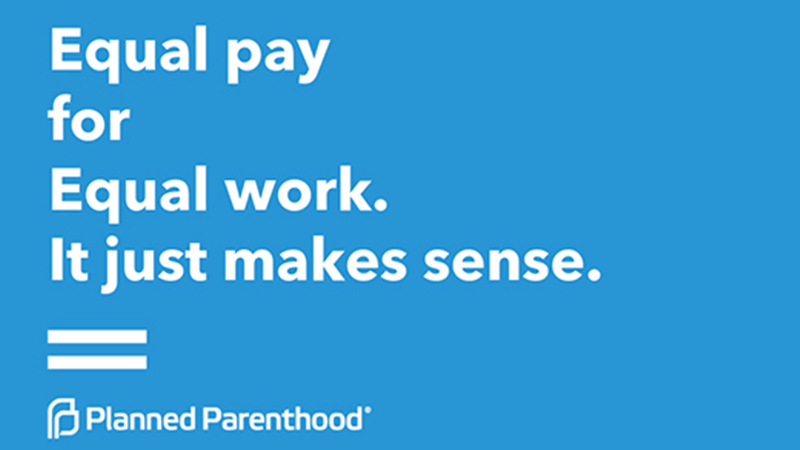
Sign Up For Our Careers Newsletter
Embracing Equal Pay Day — All Month Long
This month the country celebrated Equal Pay Day — a day symbolizing the amount a time a woman must work to earn what a man earned in the year before. As fierce advocates for the rights of women — not only in the doctor’s office, but in their everyday life — we at Planned Parenthood want to take the time to shed some light on the inequality women face in the workplace.
Women should not be penalized for their gender. They should not be penalized for having a family. And they should not be further penalized by for their ethnicity.
What is Equal Pay Day?
From the National Committee for Pay Equity’s Official website:
“Equal Pay Day was originated by the National Committee on Pay Equity (NCPE) in 1996 as a public awareness event to illustrate the gap between men’s and women’s wages.
Since Census statistics showing the latest wage figures will not be available until late August or September, NCPE leadership decided years ago to select a Tuesday in April as Equal Pay Day. (Tuesday was selected to represent how far into the next work week women must work to earn what men earned the previous week.) The date also is selected to avoid religious holidays and other significant events.
On previous Equal Pay Days, grassroots organizing on fair pay swept local communities. Women’s business and professional associations, labor groups, civil rights organizations and others committed to equal pay coordinated activities to raise awareness about how to solve wage inequality.”
The Fight for Equality
In 1960, the average woman earned only 60% of what a man in the same position made. According to a recent analysis, pay equality won’t be achieved until 2059–40 years from now!
Inequality in pay for women is a long road — but for women of color and minorities, the road is even longer. As they stand today, the facts are disheartening:
- For every $1 a man makes, a woman working full-time makes around 80 cents
- Black women in the United States who work full time, year-round are typically paid just 61 cents for every dollar paid to white, non-Hispanic men.
- And for Hispanic women, that number drops to 53 cents! Nearly half of what a white, non-Hispanic man would make.
In all 50 states, women of color are disproportionately affected by this lifetime wage gap, earning less toward their retirement benefits, and compounding the existing inequities in access to basic necessities such as health care. Planned Parenthood is committed to breaking down the pay gap to ensure that all people live stable, healthy, and empowered lives.
Planned Parenthood’s Stance on Pay Inequality
We believe that all people — no matter their race, religion, sexual orientation or gender — should be compensated based on their unique skill sets and what they bring to the table every day. The wage gap doesn’t just impact economic success, it impacts people’s ability to get health care and can compound the structural barriers communities of color already face to accessing quality health care. Planned Parenthood continues to work toward ensuring all people are able to be healthy and access quality health care — no matter what.
As our former President, Cecile Richards once said,
“It is time to ensure all women, especially women of color, receive equal pay for equal work. The public overwhelmingly supports equal pay. We cannot move ahead if half the population is left behind. Women — and this country — are ready to move forward. Anyone who argues differently is on the wrong side of history.”
Join Us
We believe in the worth of every person — our team members, our community members, and women around the world. And we need more people like you on our team to help us carry out our mission. Explore our available opportunities here.
